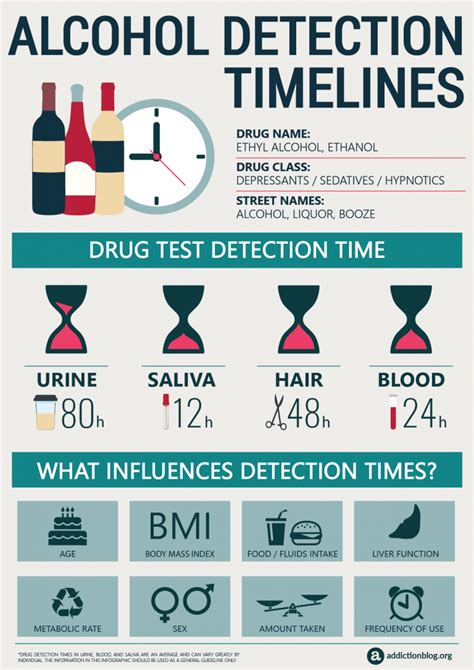How Long Does It Take Alcohol to Leave Your System?
Knowing how long alcohol stays in your system is crucial for various reasons, from making safe driving decisions to understanding the implications for health and drug testing. The answer, however, isn't a simple one-size-fits-all. Several factors influence the elimination process. This guide will explore these factors and provide a clearer understanding of alcohol's metabolic journey through your body.
Factors Affecting Alcohol Elimination Time
Several key factors determine how long it takes your body to process alcohol:
-
Amount Consumed: This is perhaps the most obvious factor. The more alcohol you drink, the longer it takes to eliminate. A single drink will metabolize much faster than binge drinking.
-
Your Metabolism: Individual metabolic rates vary significantly. Factors like age, weight, gender, and overall health influence how quickly your liver processes alcohol. Generally, individuals with faster metabolisms will process alcohol more quickly.
-
Body Composition: People with higher body fat percentages tend to metabolize alcohol more slowly because alcohol is less readily distributed in fat tissue compared to water.
-
Food Consumption: Eating before and during alcohol consumption slows down the absorption rate, leading to a slower increase in blood alcohol concentration (BAC) and thus a potentially shorter overall elimination time.
-
Type of Alcoholic Beverage: While the alcohol content is the primary determinant, the presence of other substances in different drinks might slightly influence metabolism. However, this effect is generally minor compared to the quantity of pure alcohol consumed.
-
Medication Interactions: Certain medications can interact with alcohol, potentially affecting its metabolism and elimination.
Understanding Blood Alcohol Content (BAC)
Blood Alcohol Content (BAC) is a crucial measurement representing the percentage of alcohol in your bloodstream. Legal limits for driving under the influence (DUI) are based on BAC levels. These limits vary by location, but generally range from 0.05% to 0.08%.
It's important to note: A BAC of zero doesn't necessarily mean alcohol is completely eliminated from your system. Trace amounts may still be detectable through more sensitive tests even after a BAC of zero is reached.
How Long is Alcohol Detectable?
The detectability of alcohol depends on the testing method used:
-
Breathalyzer: Measures BAC in real-time, reflecting immediate alcohol presence.
-
Blood Test: Offers a more precise BAC measurement, but only provides a snapshot at a specific time.
-
Urine Test: Can detect alcohol metabolites for a longer duration, often up to several days, depending on factors mentioned earlier. This makes it useful for longer-term monitoring.
-
Hair Follicle Test: This test can detect alcohol use over a much longer period, sometimes months, by analyzing alcohol metabolites incorporated into the hair's structure.
Estimating Elimination Time
There are general rules of thumb, but these are very rough estimates and shouldn't be relied upon for critical decisions:
-
One Standard Drink: The liver typically metabolizes about one standard drink per hour. This is a highly variable estimation, subject to all the previously mentioned factors.
-
Multiple Drinks: For multiple drinks, estimating elimination time becomes far more complex due to the individual factors at play.
Disclaimer: This information is for educational purposes only and should not be considered medical advice. Always consult with a healthcare professional for personalized guidance regarding alcohol consumption and its effects on your body. Never drive under the influence of alcohol.
